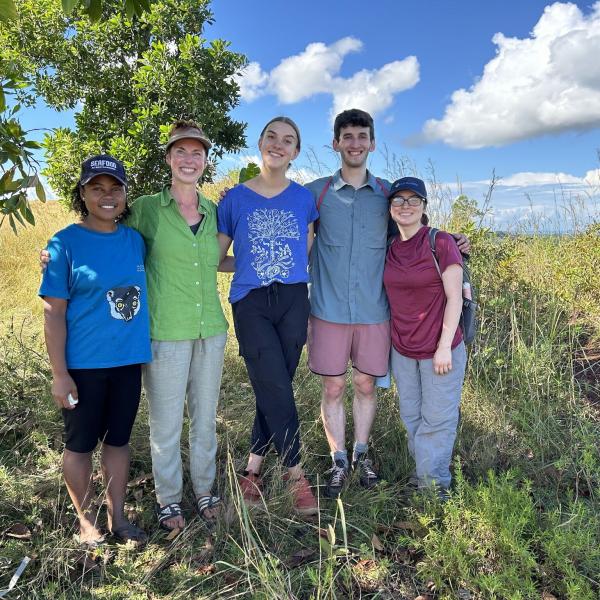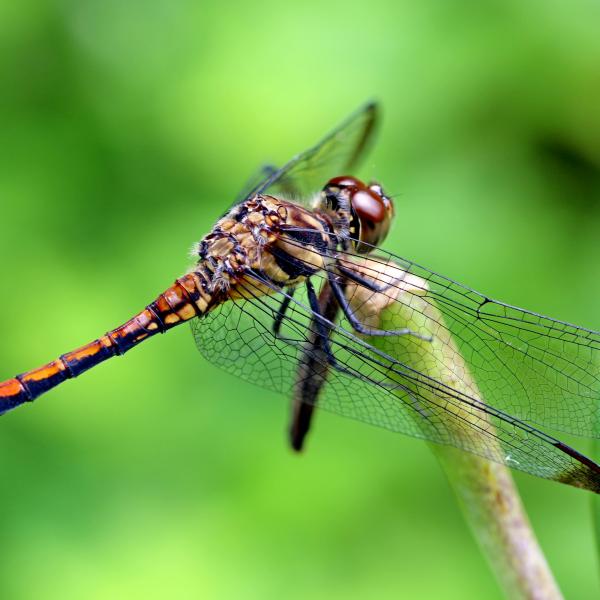Ahead of the 2020 Major-Minor Fair, senior Keishi Foecke looks back at her academic journey in Arts & Sciences.
By following her interests far and wide, Keishi Foecke discovered her ideal major and minor – but her intellectual explorations didn't end there. In her first three years at WashU, Foecke took courses in 11 departments and programs in Arts & Sciences.
If you are on the path to choosing a major, be sure to take advantage of the upcoming Major-Minor Fair, which will be hosted virtually by the College of Arts & Sciences Oct. 26–29. At the fair, you can gather information about majors and minors in Arts & Sciences, meet faculty and staff in those fields, and get information from the Career Center, Overseas Programs, University Libraries, and the Office of Undergraduate Research. Don't miss it!

I had always thought that, as a senior in college, I would have my life figured out by now. I had hoped, and even expected, that I would be zoned in on one job, one profession, or at least one general field. After three years of college and innumerable experiences, however, I still don’t know what I want to do when I grow up.
I came to WashU from an international high school where I took the majority of my classes in French and chose to “specialize” in the natural sciences. While I knew that I wanted to shift my focus toward the humanities and social sciences, I had no idea what field within those enormous categories I would choose to devote my studies to. My list of potential interests included religious studies, romance languages, political science, anthropology, and international studies. Evidently, I could not (and did not) major or minor in all of these disciplines, and thus began my process of narrowing down my disciplines of interest to just a few.
Luckily, the beauty of the College of Arts & Sciences is that I had the time and the freedom to do just that. My first semester at WashU, I took classes in international studies, political science, writing, Spanish, and physics. The next, I took classes in anthropology, linguistics, American culture studies, and Spanish. Perhaps my favorite class of them all was “Introduction to Cultural Anthropology,” the class that ultimately swayed my course toward anthropology. Once I explored the major in anthropology more thoroughly, I discovered the global health and environment concentration, which perfectly combined my interest in social sciences and my multicultural background with my high school experiences in the natural sciences. I thus decided to declare a major in Anthropology: Global Health and Environment at the beginning of my sophomore year.
While I had decided on my major, my interests kept evolving as I took many more fascinating classes at WashU, such as “City on a Hill: The Concept and Culture of American Exceptionalism” in American Culture Studies and “Religious Dissent and Reform in American Life” in Religion and Politics. Nearly every class that I took piqued my interest in the broader subject area, making my path to my finalized course of study all the more difficult, yet in the best way possible. My eyes were constantly opened to new topics I would have never discovered on my own.
So, I continued taking classes that genuinely fascinated me, regardless of their departmental affiliation. It wasn’t until my junior year that I realized, entirely by chance, that I was well on my way to a minor in American Culture Studies, a unique and highly multidisciplinary program with a curriculum featuring many cross-listed classes from various humanities and social sciences disciplines. American Culture Studies effectively allowed me to take classes in all of the disciplines in which I was interested, while benefiting from their wonderful resources and support for students.
"While I had decided on my major, my interests kept evolving ... I continued taking classes that genuinely fascinated me, regardless of their departmental affiliation."
After taking three years of classes focusing on global health and medical anthropology, as well as participating in some formative extracurricular experiences focused on promoting health equity, I discovered my passion for public health. While I still don’t know what exactly within the large realm of public health I hope to specialize in, I realized that my commitment to reducing health disparities was strong enough that it was something I would be eager to translate into a future career. I decided to take advantage of the proximity of the Brown School, WashU’s phenomenal school of social work and public health. I applied for the 3+2 Master in Public Health program, which I’ve just begun while I also finish up my undergraduate requirements in Arts & Sciences, including a senior thesis in anthropology. I am grateful to be a dual member of the WashU community and am thrilled to be beginning this next phase of my academic journey.
I ended up taking courses in 11 different Arts & Sciences departments over the course of my first three years, successfully checking off a class in nearly every field on my initial list of disciplines of interest from when I was a first-year student, plus a few. I realized throughout my journey that while my official listed majors and minors certainly mattered, what was perhaps more important was everything that I learned and explored along the way. While it might feel like that one department on your transcript is the be-all, end-all of your academic journey, I urge you to explore any class or interest that arises, as it might just lead you to a new passion that you never knew existed.
I still don’t know exactly what I want to do when I “grow up,” but I now realize that that is more than okay. I know that whatever I do, I will remain genuinely curious about anything that comes my way and will be well-equipped to tackle any journey, all thanks to my explorations in Arts & Sciences.




